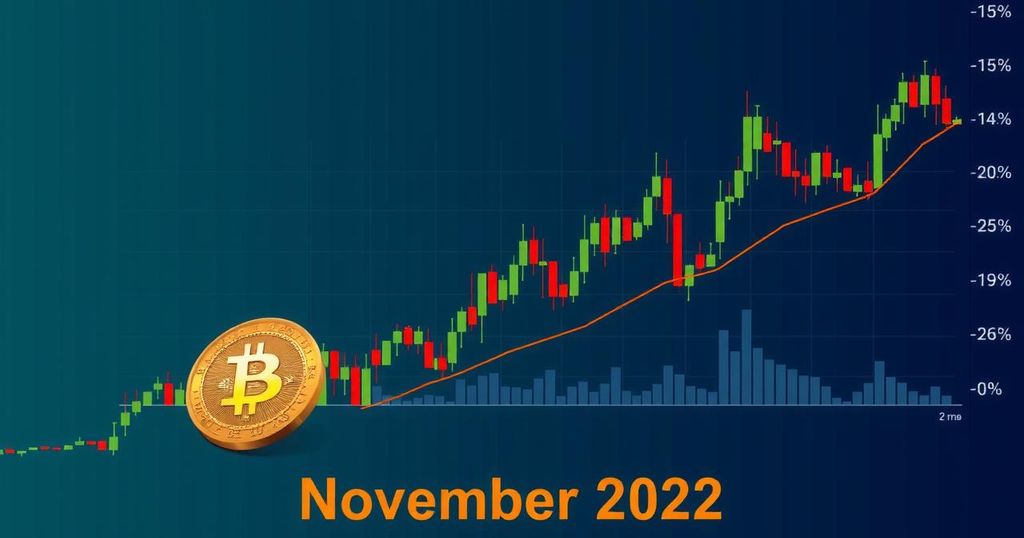Bitcoin’s Decline Linked to Japan’s Political Developments and Market Dynamics
Bitcoin fell below $64,000 after a surprise choice for Japan’s prime minister triggered a 5% decline in the Nikkei index. The appointment raised fears of tighter monetary policy from the Bank of Japan, making Bitcoin particularly vulnerable after an overbought phase fueled by recent U.S. interest rate cuts and Chinese economic stimulus.
Bitcoin has once again dipped below the $64,000 mark, influenced by a significant 5% drop in Japan’s Nikkei index following the surprise selection of Shigeru Ishiba as the next prime minister. Thisunexpected political change has heightened concerns regarding a tightening of the Bank of Japan’s monetary policy, leading to a sell-off in financial markets, including cryptocurrencies. Bitcoin had recently experienced a surge of nearly 14% in value after the U.S. Federal Reserve’s decision to cut interest rates by 50 basis points, but this positive momentum was abruptly interrupted. The market had shown signs of being overbought, making Bitcoin particularly susceptible to a downturn after its rapid ascent.
In the wake of the U.S. Federal Reserve’s recent rate cut, Bitcoin had reached impressive highs, but the financial landscape shifted with Japan’s unexpected political developments. The new prime minister’s inclination towards favoring higher interest rates reflects a broader trend in central banking that could have ramifications for global markets, including Bitcoin’s price. The historical context surrounding the Bank of Japan’s prior monetary policies, particularly the effects of previous modest rate hikes, has underscored the fragility of cryptocurrencies amidst geopolitical shifts. Additionally, China’s recent monetary stimulus has also impacted global economic conditions, accentuating the interconnectedness of the cryptocurrency market with broader economic indicators.
The selection of Shigeru Ishiba as Japan’s prime minister has introduced renewed volatility in cryptocurrency markets, particularly evidenced by Bitcoin’s decline back below $64,000. The interplay between global economic policies and market psychology has emphasized the fragility of Bitcoin amidst politically induced market sentiments. As investors navigate these turbulent waters, it remains imperative to monitor both macroeconomic developments and market indicators for evidence of sustained bullish or bearish trends in the cryptocurrency sector.
Original Source: www.coindesk.com







Post Comment